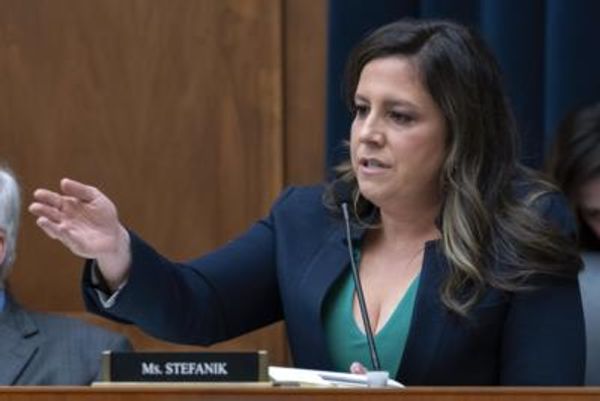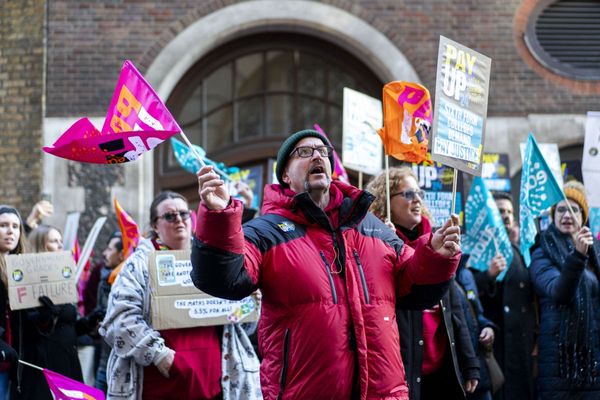
As the Republican establishment reaffirms its fealty to U.S. President Donald Trump at the Republican National Convention (RNC), two of the president’s most influential lieutenants appear to be vying for a bit of the spotlight themselves—and potentially positioning themselves for party leadership in a post-Trump era.
U.S. Secretary of State Mike Pompeo and Nikki Haley, Trump’s former ambassador to the United Nations, devoted their prime-time addresses to promoting the president’s policy achievements in which they played a leading role.
“Both of them have an eye on 2024,” said Mark Groombridge, who served as a Republican political appointee at the U.S. Mission to the United Nations under John Bolton. “They are showing MAGA [Make America Great Again] land, the Trump base, that they are in his favor, and having a speaking role reinforces that view. It also helps introduce them to a broader public.”
Republican insiders say Haley and Pompeo both stand a credible chance of leading the party mantle after Trump leaves the scene, but they are likely to face competition from other aspirants, including Vice President Mike Pence, who delivered his speech from Abraham Lincoln’s Indiana home.
“I think they are both serious enough people. Not that that’s a criterion for office anymore,” said Danielle Pletka, a senior fellow in foreign and defense policy studies at the American Enterprise Institute. “Does that mean they won’t get a run for their money from governors and senators and reality stars? Nope.”
Pompeo’s address was recorded in Jerusalem, a religiously diverse city rich with symbolism for two critical electoral constituencies: pro-Israel conservatives who have aligned ever more closely with the Republican Party and evangelical Christians. Pompeo portrayed administration achievements in religious terms that appeal to the party’s base.
“The president, too, moved the U.S. Embassy to this very city of God, Jerusalem, the rightful capital of the Jewish homeland, and just two weeks ago, the president brokered a historic peace deal between Israel and the United Arab Emirates. This is a deal that our grandchildren will read about in their history books,” Pompeo said.
In urging Americans to stay the course with Trump in 2020, Pompeo quoted an American pastor that the Trump administration helped free from imprisonment in Turkey. “An American hostage, imprisoned in Turkey for two years, Pastor Andrew Brunson, said upon his release that he survived his ordeal with these words of scripture, ‘Be faithful, endure, and finish well.’ If we stay the course, we will,” he said.
Pompeo drew fire from the State Department’s own ranks and several Democratic lawmakers for addressing the RNC while on official travel, breaking a historic precedent of secretaries of state avoiding domestic politics—and potentially violating State Department rules on officials participating in political events.
But Pompeo has weathered countless political firestorms in Trump’s Washington unscathed and emerged as one of Trump’s closest confidants unlike dozens of other administration officials.
Conservative foreign-policy experts believe Pompeo has a bright political future in the Republican Party, made clear by his consideration of a Senate run in his adopted home state of Kansas, encouraged by senior Republican lawmakers.
Pompeo has caught flak in the past for mixing his purported political ambitions with official State Department business. He has visited deep-pocketed conservative political donors during pit stops on official State Department trips, and he traveled to Kansas so often while flirting with a Senate run that one of the state’s top newspapers urged him to stop unless he jumped into the race.
Trump’s top diplomat refrained from taking partisan potshots at Democratic presidential nominee Joe Biden, instead listing what he saw as the administration’s prime foreign-policy achievements: negotiating the release of Americans detained in North Korea, Turkey, and Iran; withdrawing from the Iran nuclear deal; moving the U.S. Embassy in Israel from Tel Aviv to Jerusalem; and ramping up pressure on the Chinese Communist Party—all moves that play directly to the party’s conservative base. “President Trump has put his America First vision into action. It may not have made him popular in every foreign capital, but it’s worked,” Pompeo said.
His speech drew a sharp response from some veterans of Middle East peacemaking. “Having had [the] honor of working for half [a] dozen Secretaries of State, never believed I’d see one use Jerusalem as a stage prop, undermine the prestige of the office and abuse its power to help a US President seek re-election and further his own political ambitions,” Aaron David Miller, a veteran U.S. diplomat and Middle East scholar, tweeted after the speech.
Others disagreed, portraying the criticisms as overblown. “I see the Pompeo protocol fuss as so much partisan garbage,” Pletka told Foreign Policy. “The coverage of the convention has been a disgrace to the profession of journalism.
“I don’t think we can think of anyone who appears on the stage outside the context of their own ambitions except perhaps the candidate’s wife. And even then—Hillary,” she added, referring to Hillary Clinton. “That goes for every party, and Amb. Haley and Sec. Pompeo are no different.”
Haley, in a speech on the opening night of the convention, paid homage to the president, saying that Trump “has always put America first. And he has earned four more years as president.” But the former South Carolina governor quickly shifted gears, highlighting her support for Israel and her role in bringing business to South Carolina.
Seeking to address charges of racism in the Republican Party, Haley highlighted her own personal story as the bullied child of Indian immigrants who rose to the heights of the U.S. government.
If Trump wins in November, Haley would likely get another cabinet-level position, possibly secretary of state, Groombridge noted. But that would require Pompeo to move on to another position.
Since leaving her post at the U.N. in 2018, Haley has remained in the national spotlight, founding an advocacy group called Stand for America and frequently speaking publicly on burning issues. “What’s interesting is since Haley left the U.N., she hasn’t stopped talking and engaging on foreign policy,” said James Carafano, an expert on foreign policy at the Heritage Foundation.
If Trump is defeated, Haley and Pompeo would both seek to continue his legacy, Groombridge said. “There is zero incentive at this stage for anyone to try to repudiate or divorce themselves from Trumpism.”
Would their foreign-policy experience give them an advantage over other Republican candidates?
“On the pure political front … the base couldn’t care less about these issues, so it’s funny to see Haley and Pompeo up front,” Pletka said.







